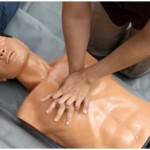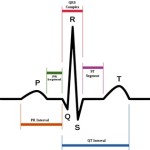What is an LVN Licensed Vocational Nurse?
The licensed Vocational Nurses (LVN) have 18 months to two years of training and they must pass the state or national boards to renew their license. So what is nursing? In particular an LVN? The LVN is a type of nurse that can also perform both simple and complex medical procedures, and the only difference is that they must operate under the supervision of an RN or a physician. When it comes to medications, LVNs can administer most of them; they also can keep records, take measurements, perform emergency life-saving like CPR or administer basic care.
An LVN job description can be summed up as working with facilities such as:
- Medical hospitals
- Outpatient clinics
- Ambulatory surgery centers
- Blood Banks
- Physician Offices
- Home Care Agencies
- Dialysis Centers
- Vocational Nursing Programs
- Military
- Community programs
- Schools
 Be sure to check out our available Houston Nursing Jobs LVN while you’re here.
Be sure to check out our available Houston Nursing Jobs LVN while you’re here.
LVNs provide compassion and hands-on care to people of all ages. They are the front line providers and their reward part of their daily work is the close and meaningful contact they have with their patients each day. Under the eyes of the registered nurses and physicians, a licensed vocational nurse job description is to deliver most of the bedside care. From wound dressing to assisting people, LVNs or licensed practitioner nurses LPNs as they are called in some other countries, spend most of their workday helping people with their daily tasks.
If you want to work as a licensed vocational nurse you may start by completing a certificate program at the career center or at your community college. While completing this program you may consider contacting the state board of nursing and gaining a list of approved programs. Most nursing programs require a high school diploma. Schools are offering LVN training in grades from 9 to 12. After graduation you may go directly into the workforce as many other students do, or you may continue to college and continue study nursing, medicine or pharmacy.
As for many other branches, licensure is mandatory for LVNs too. After graduation many people who want to become LVNs apply to the state board of nursing. Those individuals who are eligible for licensure must pass the National Council Licensure Examination (NCLEX – PN).
Nurse Salaries
According to the U.S. Bureau of Labor Statistics the annual median salary for licensed vocational nurses was $46,240 in 2018. Approximately 80% of the licensed vocational nurses earn between $36,880- $50,080 per year.
Outlook
The number of employment for LPNs is expected to grow specifically from 2010 to 2020. This is higher than the average growth for most occupations. The long-term care needs are increasing in the elderly population as well as the general growth of the health care services. The major source of job openings is the replacement need because many workers usually leave this occupation permanently. In the past, major employers of LVNs were the hospitals. Today they may decline the LVNs job applications because of too much competition. On the opposite side are the nursing care facilities who have increased needs of LVNs and this is expected to grow much more because they have patients who need long-term care.






















